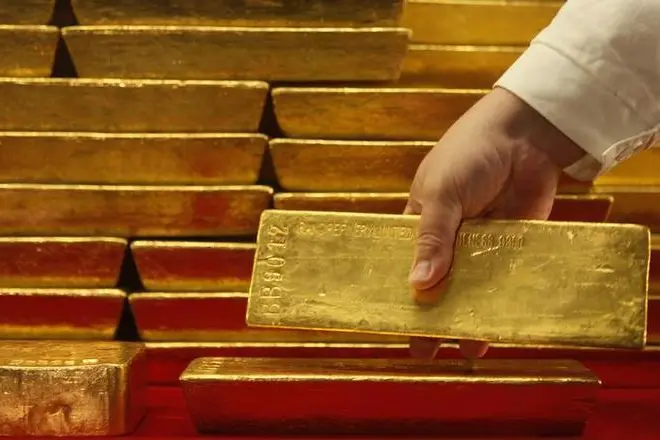PHOTO
LONDON - Gold traded at record highs in some currencies on Monday and neared all-time peaks in U.S. dollar terms after banking sector turmoil sent prices of the safe haven asset rocketing 10% in a matter of days.
Banking stocks and bonds continued to plummet on worries that more problems may emerge after several U.S. banks and Switzerland's Credit Suisse collapsed or required rescue.
In U.S. dollars, gold shot as high as $2,009.59 from $1,815 on March 9 and was within sight of its 2020 peak of $2,072.50.
In other currencies, records had already fallen. Gold rose above 3,000 Australian dollars and 165,000 Indian rupees for the first time and traded around 1,880 euros, just 20 euros shy of its euro record.
"It's all about risk hedging," said StoneX analyst Rhona O'Connell.
"A Swiss bank is supposed to be the be all and end all of safe havens," she said. "If something else happens in the banking sector, you can expect gold to go higher."
Gold had fallen back to around $1,980 an ounce by 1230 GMT, with technical indicators suggesting that the rally may have gone too far too fast.
All eyes were on a U.S. Federal Reserve meeting on Wednesday.
Rising U.S. interest rates had put pressure on gold by increasing returns on competing assets like bonds but investors now believe the Fed must slow or stop its tightening to ease pressure on banks, despite inflation remaining high.
"Its ALL about the Fed," MKS PAMP strategist Nicky Shiels wrote in a research note, predicting rates would remain unchanged on Wednesday.
The failure of Silicon Valley Bank this month was "a gamechanger" for gold, she said. "The Fed will have to choose between higher inflation OR a recession/financial instability and either outcome is bullish for gold, which puts all time highs in play."
Some investors may sell gold to take profit in the short term but bullion's upward trend should continue, said Saxo Bank analyst Ole Hansen.
"Peak rates have on three previous occasions during the past 20 years triggered a prolonged period of gold strength. Given the current situation a repeat cannot be ruled out."
(Reporting by Peter Hobson; editing by Jason Neely)





















